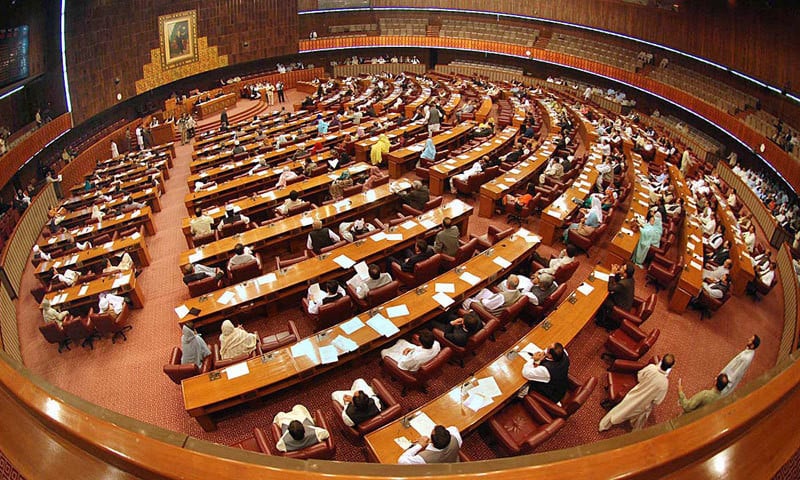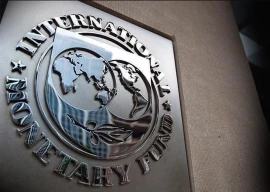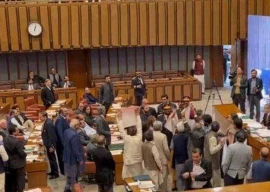
The National Assembly has suspended a motion proposing an increase in the number of Supreme Court judges.
A motion to increase the number of judges in the Supreme Court of Pakistan was tabled in the Senate on Monday.
Senator Abdul Qadir introduced the motion during a session chaired by Chairman Yousaf Raza Gillani, Express News reported.
Senator Qadir highlighted the growing backlog of cases in the Supreme Court, citing the shortage of judges as a primary cause.
"Due to the limited number of judges, cases take years to be scheduled. Hundreds of tax-related cases involving billions of rupees are pending in courts, while we are forced to seek financial aid from other countries to meet our national needs," he said.
There is a perception that in order to give majority to the other camp, the PML-N government is increasing the number of SC judges.
Chief Justice of Pakistan (CJP) Qazi Faez Isa is retiring on October 25, but the PML-N government wants that he should remain in office for the continuity of the present system.
However, CJP Isa has made it clear that he is not interested in an extension through person specific legislation. However, he may continue if parliament extends the retirement age of every superior court judge for three years.
Today's session, chaired by Speaker Sardar Ayaz Sadiq on Tuesday, saw several key discussions, including concerns over a corporate farming initiative and the allocation of 4.8 million acres of land.
Other proposed motions
During the session, Minister for Water Resources, Musadik Malik, responded to a notice from Naveed Qamar regarding changes to water flow and the allocation of land for the Green Carpeto Initiative.
Malik clarified that 800,000 acres of barren land have been designated for cultivation under this initiative, a project supported by both Punjab and Sindh provinces.
The project, which includes the construction of a 296-kilometre canal, is valued at Rs 211 billion. Malik assured that Punjab would use its share of water, without taking from other provinces.
Naveed Qamar expressed concerns, stating, "A country like Pakistan cannot afford such projects."
Malik suggested that any confusion could be resolved through discussion, and if Sindh had any issues, the land could be returned.
Khursheed Shah emphasised the sensitivity of the matter, calling for the formation of a committee to assess the water requirements for the proposed 4.8 million acres, questioning whether Pakistan could afford the project.
In the same session, JUI-F's Noor Alam Khan introduced several constitutional amendment bills, including one to amend Article 184/3 related to the Supreme Court's suo moto powers.
This proposed amendment suggests that a minimum of nine judges should hear public interest cases, and affected parties should be allowed to appeal within 30 days.
Another significant bill proposed by Khan sought to allocate reserved seats for overseas Pakistanis in the National Assembly, Senate, and provincial assemblies.
Additionally, he introduced a bill to ban dual nationality for Supreme Court and High Court judges and bureaucrats, which was opposed by the Law Minister Azam Nazeer Tarar, citing the Establishment Division's instructions.
Barrister Gohar opposed a bill seeking to amend the Contempt of Court Act 2024, arguing that the judiciary must have the right to enforce its orders.
Another bill, proposing an increase in the number of Supreme Court judges from 17 to 23, was introduced by PML-N’s Daniyal Chaudhry but was postponed by the Speaker.














1725083820-0/Untitled-design-(24)1725083820-0-270x192.webp)









COMMENTS
Comments are moderated and generally will be posted if they are on-topic and not abusive.
For more information, please see our Comments FAQ